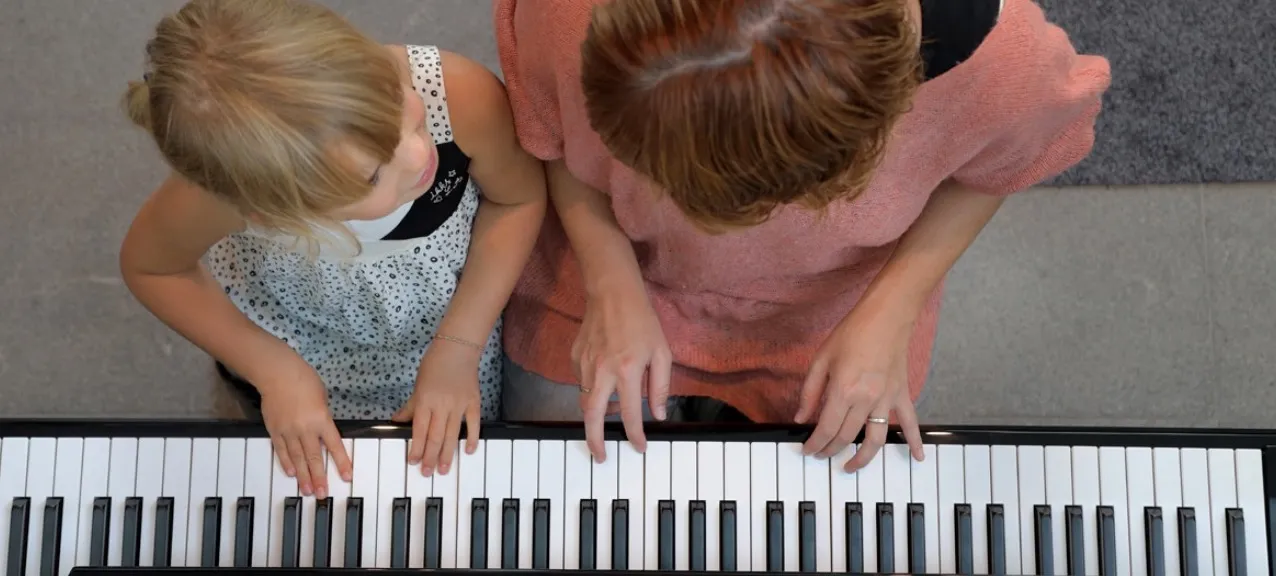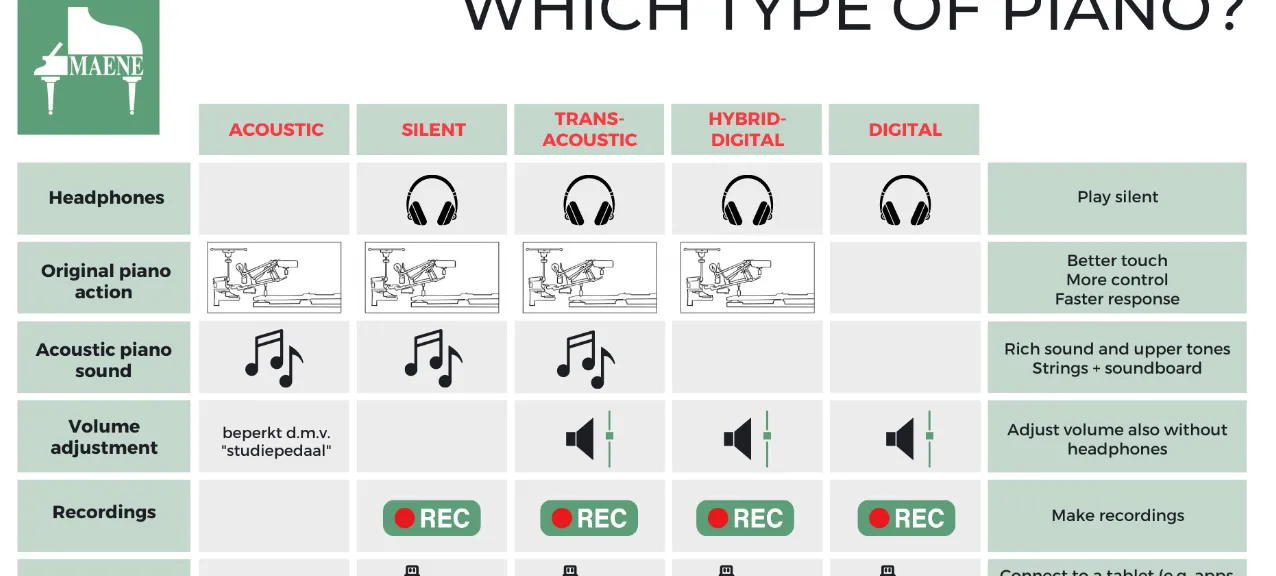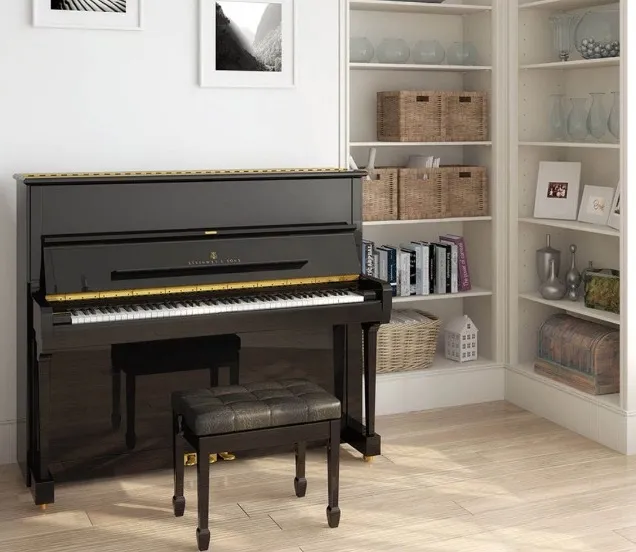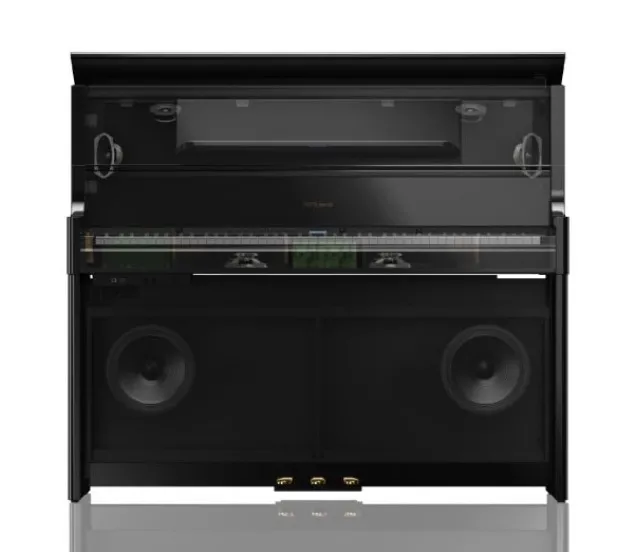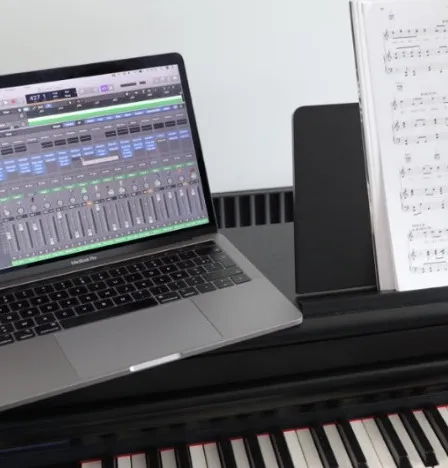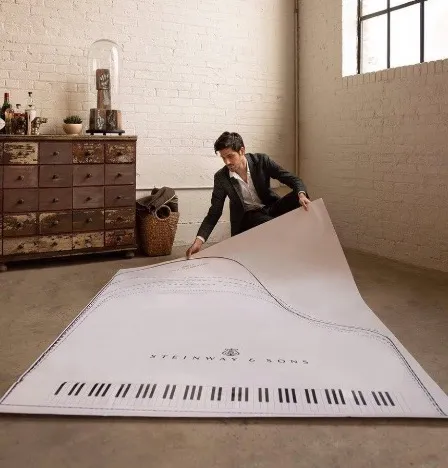Step 1: Which type?
In many ways, the division between acoustic and digital pianos is outdated and ignores the many interesting combinations that can be found. For example, there are acoustic pianos today that combine the artistic and pedagogical advantage of real piano technology and sound with a headphone system. Broadly speaking, there are 5 different types. Decide for yourself which features you definitely want in your new instrument. If possible, also distinguish between "must have" and "nice to have". Then you can find which type meets your needs in the overview.

